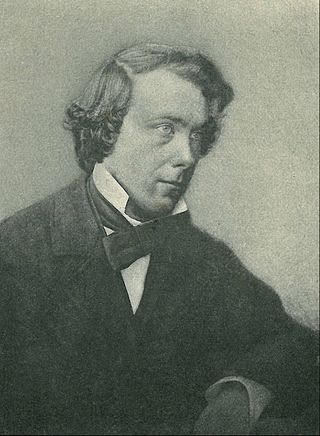
Thomas Edward Brown, referred to commonly as T. E. Brown, was a late-19th century scholar, schoolmaster, poet, and theologian from the Isle of Man.

Clifton College is a public school in the city of Bristol in South West England, founded in 1862 and offering both boarding and day school for pupils aged 13–18. In its early years, unlike most contemporary public schools, it emphasised science rather than classics in the curriculum, and was less concerned with social elitism, for example by admitting day-boys on equal terms and providing a dedicated boarding house for Jewish boys, called Polack's House. Having linked its General Studies classes with Badminton School, it admitted girls to every year group in 1987, and was the first of the traditional boys' public schools to become fully coeducational. Polack's House closed in 2005 but a scholarship fund open to Jewish candidates still exists. Clifton College is one of the original 26 English public schools as defined by the Public Schools Yearbook of 1889.

Richard Prescott Keigwin was an English schoolmaster, sportsman, translator, and author. He played first-class cricket for Cambridge University, the Marylebone Cricket Club, Essex, and Gloucestershire, and hockey for Essex and England.
Arthur Wilberforce Jose was an English-Australian historian and editor of the Australian Encyclopaedia.

Derby School was a school in Derby in the English Midlands from 1160 to 1989. It had an almost continuous history of education of over eight centuries. For most of that time it was a grammar school for boys. The school became co-educational and comprehensive in 1972 and was closed in 1989. In 1994 a new independent school called Derby Grammar School for boys was founded.
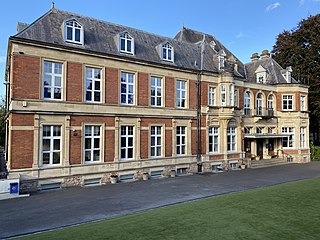
Clifton High School is a co-educational private school in Clifton, Bristol, England. Clifton High School was founded as an all-girls' school in 1877 for girls aged 7–17, and the nearby Clifton College was then a boys' school. In 1887, a preparatory class was set up where boys were soon admitted. It has a student:teacher ratio of 1:5.56. It became fully coeducational in 2009. It is a member of the Society of Heads.
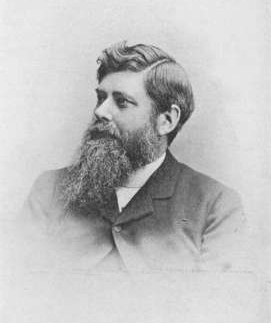
Herbert Armitage James, CH was a Welsh cleric and headmaster of three leading public schools, who ended his "remarkable scholastic career", as it was later described by Austen Chamberlain, by becoming President of St John's College, Oxford. After an Oxford education and early teaching career at Marlborough College, he was headmaster of Rossall School from 1875 to 1886. It was said that he raised the school "to a pitch of all-round excellence which it had not known before". After suffering from health problems at Rossall, he served as Dean of St Asaph from 1886 to 1889. He returned to teaching in 1889, becoming headmaster of Cheltenham College and remaining in this post until 1895, despite being offered the position of headmaster of Clifton College. He then became headmaster of Rugby School and served there to great acclaim. His Rugby School nickname of "The Bodger" is still in use at the school. He left Rugby School in 1909 to become President of St John's College, Oxford, a position he held until his death 22 years later.
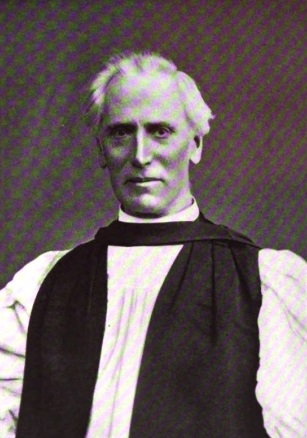
John Percival was the first headmaster of Clifton College, where he made his reputation as a great educator. In his 17 years at Clifton numbers rose to 680. He accepted the presidency of Trinity College, Oxford, to recover from his years at Clifton. It was from Trinity that he went to Rugby to become headmaster of Rugby School before becoming Bishop of Hereford.
Michael George Glazebrook was a Headmaster of Clifton College, later a Canon of Ely, and is reputed to have once held the world record for the high jump.
Reginald Thomas Talbot was an Anglican priest in the first part of the 20th century.
William Wolfe Capes (1834–1914) was a notable Hereford scholar.
Walter Fairbanks was an English cricketer. He played for Gloucestershire between 1875 and 1884. Fairbanks was educated at Clifton College and Clare College, Cambridge. After graduating he returned to Clifton College and taught there 1875–96.
John Edward King was an author, Fellow and Tutor of Lincoln College, Oxford, High Master of Manchester Grammar School, Headmaster of Bedford School, and Headmaster of Clifton College.
Arthur Trystan Edwards was a Welsh architectural critic, town planner and amateur cartographer. He was a noted critic of the garden city movement.
William Percival Richardson was an English schoolmaster and a sportsman who played one game of first-class cricket for Cambridge University and also won a Blue for rugby. He was born at Great Barford, Bedfordshire and died at Littlestone-on-Sea, Kent.
Theodore Richard Milford was an English clergyman, educator and philanthropist, who was involved in the founding of Oxfam.
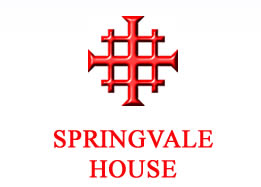
Springvale House Preparatory School is an independent, preparatory, boarding and day school in Mashonaland East, Zimbabwe that was established in 1952. The school shares facilities with Peterhouse Girls' School on the Springvale Estate of approximately 1,200 acres (490 ha) with Gosho Park, a conservation area on the estate, being adjacent to the two schools. The majority of the pupil population are boarders while the remainder are day scholars.
Sydney Adolphus Boyd was Archdeacon of Bath from 1924 to 1938.

Harold Anson, was an English Anglican priest, most notably Master of the Temple from 1935 until his death.
James Ronald Eccles was an English schoolmaster and author who was headmaster of Gresham's School, Holt.










